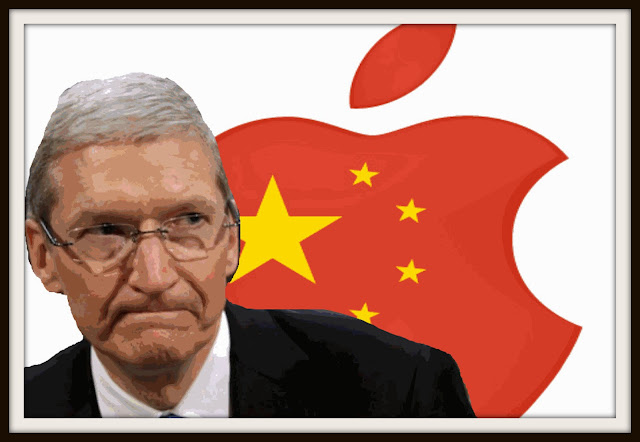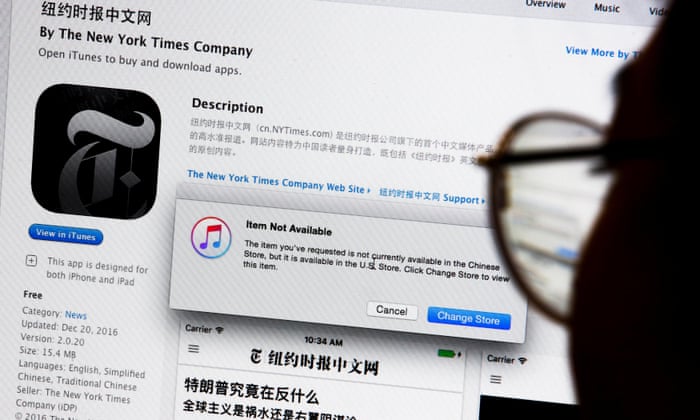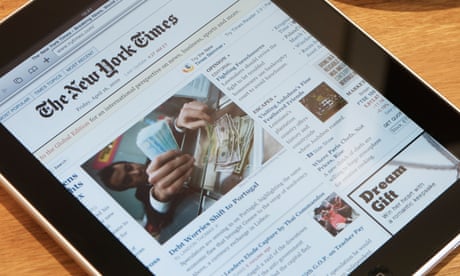BY SARAH COOK

The Year of the Dog saw Chinese journalists and bloggers kept on a tighter leash than ever.
Xi Jinping and the ruling Communist Party moved aggressively to control reporting on threats to the economy, block or shut down popular social media applications, and reduce avenues for jumping the so-called Great Firewall’s censorship.
The Year of the Pig, which starts on Feb. 5, doesn’t look much better—but could also see the start of some serious pushback globally, as the world becomes more aware of Beijing’s propaganda-fueled efforts to influence foreign audiences.
Here are five takeaways for China’s information control strategies in the new lunar year.
1. Big dates, new crackdowns.
1. Big dates, new crackdowns.
The Year of the Pig is replete with politically sensitive anniversaries: 60 years since the Dalai Lama’s flight from Tibet in March, a century since the launch of the influential May 4 student movement, 30 years since the June 4 crackdown on pro-democracy protesters in Tiananmen Square, a decade since a major bout of unrest and intensified restrictions in East Turkestan in early July, 20 years since the party launched its campaign against the Falun Gong spiritual movement later that month, and the 70th anniversary of the founding of the People’s Republic in October.
Those dates often bring extra censorship even on less significant anniversaries, and regulators seem especially keen to preempt any potential expressions of dissent in 2019.
Those dates often bring extra censorship even on less significant anniversaries, and regulators seem especially keen to preempt any potential expressions of dissent in 2019.
On Jan. 3, the Cyberspace Administration of China announced the launch of a new campaign against vaguely defined “negative and harmful information” online.
It is set to last six months and has already included instructions to the web portals Baidu and Sohu to suspend their news services for one week this month in order to “root out undesirable content.”
As the various anniversaries pass, spikes in censorship will be tracked by monitors such as Weiboscope; localized internet shutdowns and travel restrictions will affect regions such as Tibet and East Turkestan; and arrests or involuntary “vacations” will be imposed on prominent democracy advocates, grassroots activists, and ordinary Falun Gong, Tibetan Buddhist, and Uighur Muslim believers.
As the various anniversaries pass, spikes in censorship will be tracked by monitors such as Weiboscope; localized internet shutdowns and travel restrictions will affect regions such as Tibet and East Turkestan; and arrests or involuntary “vacations” will be imposed on prominent democracy advocates, grassroots activists, and ordinary Falun Gong, Tibetan Buddhist, and Uighur Muslim believers.
If the past is any indication, at least some of the repressive measures deployed and the jail sentences imposed will last far beyond the anniversary year itself.
2. First iCloud arrest.
2. First iCloud arrest.
The 2017 Cybersecurity Law stipulates that foreign companies must store Chinese users’ cloud data on servers located in China.
To meet this requirement, Apple announced last January that iCloud data would be transferred to servers run by a company called Guizhou on the Cloud Big Data (GCBD), which is owned by the Guizhou provincial government.
Apple and GCBD now both have access to iCloud data, including photos and other content.
Personal communications and information from platforms such as WeChat, QQ, Twitter, and Skype have increasingly been used by Chinese authorities to detain or convict people for their peaceful political or religious speech.
Personal communications and information from platforms such as WeChat, QQ, Twitter, and Skype have increasingly been used by Chinese authorities to detain or convict people for their peaceful political or religious speech.
This makes it only a matter of time before American companies with localized data centers become complicit in a politicized arrest.
Apple has already proved its willingness to comply with Chinese government demands that violate basic freedoms by removing hundreds of apps used to circumvent censorship or access foreign news services from its mobile store in China.
Other companies to watch include the U.S.-based note-taking app Evernote, which transferred user data to Tencent Cloud last year, and various blockchain platforms, which as of next month will be required to implement real-name registration, monitor content, and store user data.
3. Financial news frozen.
Other companies to watch include the U.S.-based note-taking app Evernote, which transferred user data to Tencent Cloud last year, and various blockchain platforms, which as of next month will be required to implement real-name registration, monitor content, and store user data.
3. Financial news frozen.
Last year, Chinese censors intensified their focus on controlling business and economic news—usually relatively openly reported topics compared with political or cultural issues—amid a trade war with the United States and slowing growth at home.
Propaganda and censorship authorities actively intervened to suppress negative reporting on a staggering economy by suspending online portals’ financial news channels, issuing regular directives to editors to carefully manage their coverage, and providing monthly ideological trainings to journalists at financial news outlets.
This year, censors have already told the media not to report information on layoffs in the tech sector and restricted the circulation of a speech by a prominent economist, who said the government had made serious economic miscalculations in 2018.
This year, censors have already told the media not to report information on layoffs in the tech sector and restricted the circulation of a speech by a prominent economist, who said the government had made serious economic miscalculations in 2018.
As the slowdown intensifies and its impact is felt across a wider range of sectors, the authorities are expected to tighten their control over the news and work to prevent—and prosecute—leaks of negative financial data and analysis.
4. Big data efforts.
4. Big data efforts.
Reports emerge weekly of pilot initiatives in which Chinese authorities attempt to incorporate artificial intelligence and other technological aids into existing control mechanisms.
The more benign examples include efforts to identify and fine jaywalkers, limit illegal subletting in public housing, encourage good manners on public transportation, and improve student attendance at school.
Yet even these cases involve considerable restrictions on privacy, possible false positives, and enormous potential for abuse.
And in other instances, similar technologies are being deployed for more obviously repressive purposes, such as censoring politically sensitive images on WeChat or identifying potential targets for forced re-education in East Turkestan.
Previous cases have been experimental or limited to certain geographical locations.
Previous cases have been experimental or limited to certain geographical locations.
But as these advanced systems for social and political control are refined, and as the government proceeds with its plans for a national social credit system, centralized surveillance is becoming the new norm.
5. Stronger pushback against influence abroad.
5. Stronger pushback against influence abroad.
The past two years have seen international society become far more sharply aware of the threat posed by the Chinese government’s foreign influence operations.
Policymakers and civil society actors in democratic countries have mobilized to more critically examine Beijing’s media engagement and investment practices.
In the United States, the Justice Department has urged the Xinhua news agency and China Central Television (CCTV) to register under the Foreign Agents Registration Act, closing an important gap in the law’s enforcement.
In the United States, the Justice Department has urged the Xinhua news agency and China Central Television (CCTV) to register under the Foreign Agents Registration Act, closing an important gap in the law’s enforcement.
In Ghana, the local independent broadcasters’ association raised concerns about a potential contract with a Chinese firm to build the country’s digital television infrastructure.
Britain’s media regulator is reviewing CCTV’s license following complaints that it had participated in the filming and airing of forced confessions by detainees, including activists and journalists.
And a host of countries, such as Australia, Japan, and Norway, have restricted or are reconsidering the Chinese firm Huawei’s involvement in current or future telecommunications infrastructure projects.
China’s leaders will continue their ambitious, and at times covert or coercive, drive to influence foreign media and information environments, but Chinese state-run outlets, telecom firms, and even diplomats are now far more likely to encounter legal and other obstacles in democratic settings.
The Chinese Communist Party’s apparatus for information control will be more technologically sophisticated than ever this year, and the leadership under Xi will press it to the limits of its capacity. That the regime believes this is necessary suggests a deep insecurity—about its own historical legacies, about the crisis of legitimacy that a slowing economy creates for an unelected government, and about the ways even the smallest expressions of public anger can snowball online and offline. Censorship, propaganda, and surveillance may seem necessary to the regime, but they are hardly sufficient.
China’s leaders will continue their ambitious, and at times covert or coercive, drive to influence foreign media and information environments, but Chinese state-run outlets, telecom firms, and even diplomats are now far more likely to encounter legal and other obstacles in democratic settings.
The Chinese Communist Party’s apparatus for information control will be more technologically sophisticated than ever this year, and the leadership under Xi will press it to the limits of its capacity. That the regime believes this is necessary suggests a deep insecurity—about its own historical legacies, about the crisis of legitimacy that a slowing economy creates for an unelected government, and about the ways even the smallest expressions of public anger can snowball online and offline. Censorship, propaganda, and surveillance may seem necessary to the regime, but they are hardly sufficient.
The authorities’ efforts continue to intensify because they are never entirely successful.
While the government’s information controls will likely bulk up during the Year of the Pig, they will come no closer to flying.



